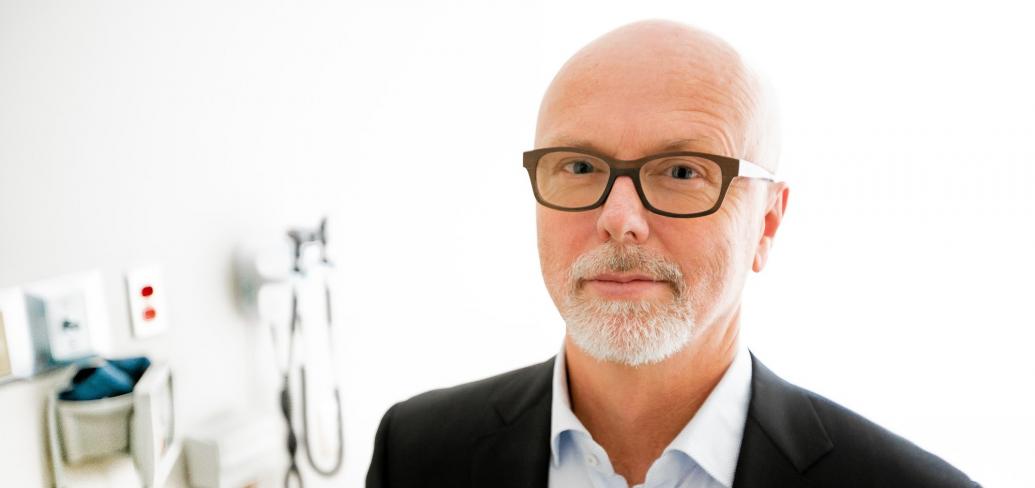As premiers gather in Ottawa for a high-stakes health summit, a majority of Canadians say they want to see more funding for health care — but many also want plans attached to increased spending amid concerns about how provinces allocate health dollars.

Prime Minister Justin Trudeau and Canada’s 13 premiers will sit down for a long-awaited first ministers meeting in Ottawa Tuesday, where Canada’s ailing health-care system will be the focus of what is expected to be a tough negotiation.
The premiers have been calling for a major influx of cash from Ottawa to the tune of about $28 billion, arguing the federal government should take on a greater share of the increasing costs of health care.
They say the annual Canada Health Transfer, which provided $45.2 billion to the provinces and territories this year and will increase to $49.3 billion next year, only covers 22 per cent of health costs and they want that percentage to rise to 35 per cent.
A senior government official with knowledge of the plan told The Canadian Press Monday that Trudeau will lay out a 10-year offer when he meets with the country’s 13 premiers in Ottawa on Tuesday.
Global News confirmed the same information with a senior federal government source, who said the offer will have two parts: an increase in the Canada Health Transfer and then an offer to do bilateral deals with the provinces that want individual flexibility.
Trudeau has said he “won’t be signing any deals” with the premiers during the Feb. 7 meeting, but rather will be focusing on how to improve outcomes for patients.
Canadians also appear to agree that more money for health care improvement is needed — but they don’t believe it should come in the form of a blank cheque, according to results of a new poll.
The Ipsos survey conducted exclusively for Global News found 86 per cent of those interviewed believe the health-care system needs more money from Ottawa, an opinion held by even more people over the age of 55 (92 per cent).
But 59 per cent of respondents said they want provinces to also show the federal government a plan on how they will deliver better care with more cash from Ottawa.
Only 41 per cent said the provinces should decide how to spend new health funding with no conditions attached.
The poll surveyed 1,001 adults between Jan. 19 and 23, 2023.
Darrell Bricker, CEO of Ipsos Public Affairs, says health-care access is currently among the top concerns for Canadians, challenged only by worries about increased costs of living.
But while health care has always been a key issue for Canadians, Bricker says public attitudes have shifted from concern about future deterioration of access to health services for families and individuals to more pressing worries about significant gaps that exist today.

“I think we’ve seen a significant shift through the course of the pandemic, where people are now worried about whether or not if they go to the hospital, they’ll be seen in a timely period of time. They’re worried about the level of services that they can expect to receive from the system,” he said.
“As a result, they’re open to considering changes that they wouldn’t have been open to considering even five years ago.”
Where do the provinces, federal government stand?
Trudeau has said he will provide more money to the provinces for health care but has not committed to any dollar amounts or percentages, saying only that he wants to ensure this money is spent on key priority areas where the needs are greatest.

Get weekly health news
“I’m looking forward to sitting down with the premiers tomorrow to discuss the future of health care in this country – the future of public health care,” Trudeau said during question period in Parliament Monday.
“We will ensure we are standing up for the Canada Health Act, ensuring that all Canadians can have access to timely, necessary procedures, we know that’s what Canadians expect — whether it’s more family doctors, whether it’s ending the backlogs in mental health services, whether it’s stopping the overwhelming of our ER — we will be there to invest with the provinces and ensure results for Canadians.”
Initially, the premiers balked at the notion of strings attached to any funding increases, but many have since softened to the idea.
The federal government, meanwhile, has suggested individual, bilateral deals with the provinces and territories may be struck to ensure conditions attached to funding meet the specific needs of different regions of the country that may be facing different geographic and logistical challenges.
The meetings Tuesday come at a time when Canadians’ concerns about the health system are growing amid nationwide health worker shortages and sometimes dangerously high wait times for emergency care.
Many Canadians not optimistic on quality of care
Fewer Canadians now rate the quality of health care that they can access as good, 60 per cent, compared to 72 per cent at the height of the pandemic in 2020 — a drop of 12 points, according to the Ipsos poll for Global News.
Only 43 per cent of people said they had timely access to care and almost half of Canadians don’t expect to see quality of care improving anytime soon, according to the poll results.

Regionally, residents of Atlantic Canada were the most pessimistic about their access to health care compared to other parts of the country, with 43 per cent rating the timeliness of their access to care as being poor. Other provinces were in the 29-37 per cent range.
Atlantic Canadians were also significantly more likely to feel their local health-care system is worse than systems in other parts of the country at almost double the rate of other provinces, the results showed.
While East Coast residents may be the most concerned about health care, it would be “misleading” to say anyone in Canada thinks health care is in good shape, Bricker said.
“It’s all degrees of bad right now. It’s all degrees of concern.”
Canadians with negative views of the health-care system primarily cite staffing shortages (72 per cent) as the biggest reason for their concerns.
But about half of Canadians also say they believe the problem is insufficient funding from the federal government and another 48 per cent say the funding their provincial government does get from Ottawa is not spent effectively or efficiently, the poll results show.
It’s precisely this moment of considerable public concern and desire for improvement that has many involved in the delivery of health services calling for significant reform, says Dr. Michael Gardam, the CEO of Health P.E.I. and chair of the board of directors of HealthCareCAN, a national organization that advocates on behalf of hospitals, research institutes and national health-care groups.
'Really hard conversations' on future of health care needed
It released a list of recommendations last week calling for a number of targeted actions it hopes will come from the first ministers meeting, stressing the time for finger-pointing over costs and jurisdictional responsibilities is over.
Provinces do need more money to help them recover from the devastating impacts of the COVID-19 pandemic, but a “real reform” of the health system is also needed, Gardam said.
“Historically, we’ve often thrown money at our system hoping that we can keep it going the way it is,” he said.
“We have to have really hard conversations around what the future of Canadian health care should look like, because right now we don’t look very good when you compare us to other developed countries across the world. We have one of the one of the worst performing health-care systems in the world.”
That’s why one key recommendation from HealthCareCan is a call to take a hard look at Canada Health Act — the legal backbone of Canada’s health system — and make changes to reflect the modern realities of what Canadians want and need from their health-care system, Gardam said.
“I think it really behooves Canadians for us to put everything on the table and have really good discussions around what should we keep in the Canada Health Act, what needs to be changed?”
This discussion should include conversations about what health services are funded by governments to better reflect the needs of Canadians, including more discussion about the role of private delivery of publicly-funded care, he said.
Better data is also needed to measure the actual capacity and outcomes of health services experienced by patients and families in order to more clearly see where gaps exist, Gardam added.
“Here in Prince Edward Island, there’s been a long history of us not necessarily measuring well and making decisions that are based on political expediency rather than necessarily this is the right thing to do for the population,” he said.
“All of our organizations use metrics to know where we are or where we’re going, so I don’t think it would be appropriate for the federal government to just say, ‘Here you go, provinces, do with (this funding) what you will.’”
NDP Leader Jagmeet Singh agreed that more money with tangible plans attached is needed to improve access to health services for Canadians.

But he called on Trudeau to make it explicit in his negotiations that any increase in federal funding for health care should not be used by provinces to fund private, for-profit health clinics and services.
“We have seen that people are waiting for hours and hours in emergency rooms, sometimes days. We know that people are waiting in pain for important surgeries and we know that health-care workers are burnt out and exhausted,” Singh told reporters in Ottawa Monday.
“Putting money into a for-profit, privatized delivery of care will in no way solve the problem — in fact, it’ll only make it worse because the only way they can staff the for-profit clinics is to cannibalize or poach (from the public system).”
The New Democratic leader said any deal reached with the premiers must include a commitment to hire more front-line health-care workers, including making it easier for those trained abroad to work in Canada.
“The problem that we’re up against is one of not enough health-care workers, so use the negotiations that we have right now to ensure that money goes towards solving the problem.”








Comments
Want to discuss? Please read our Commenting Policy first.